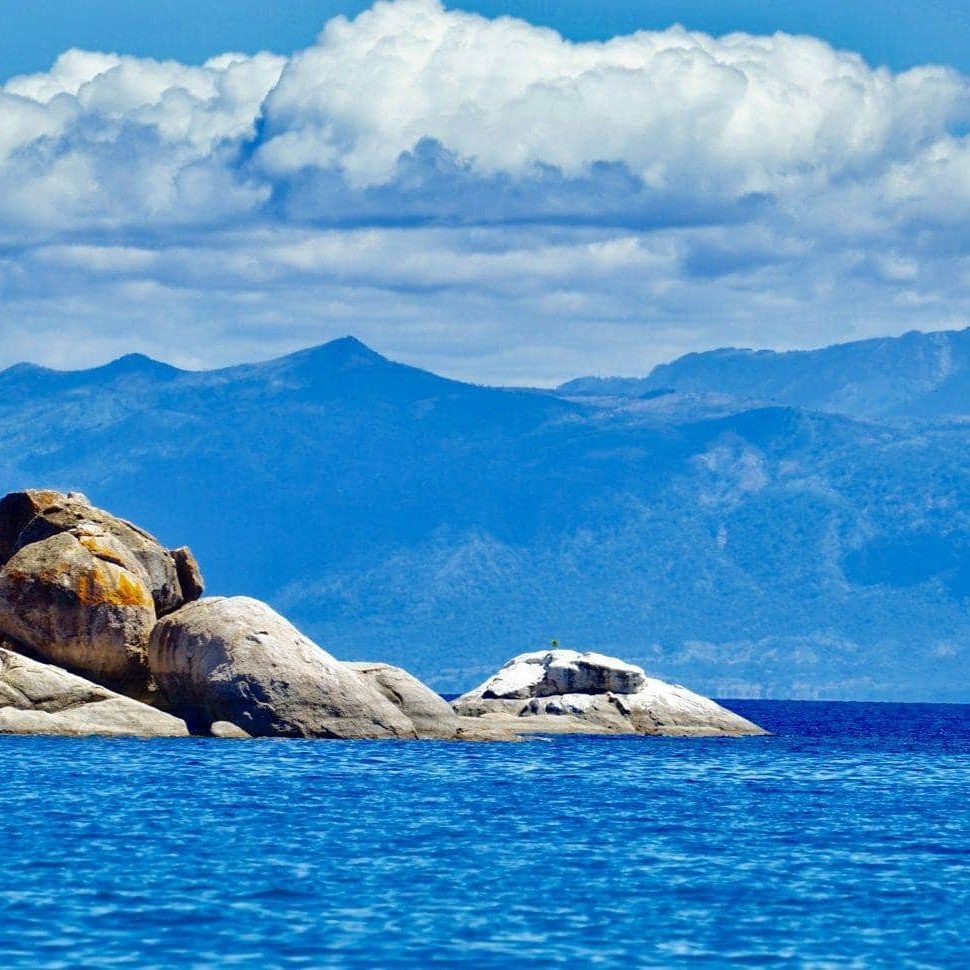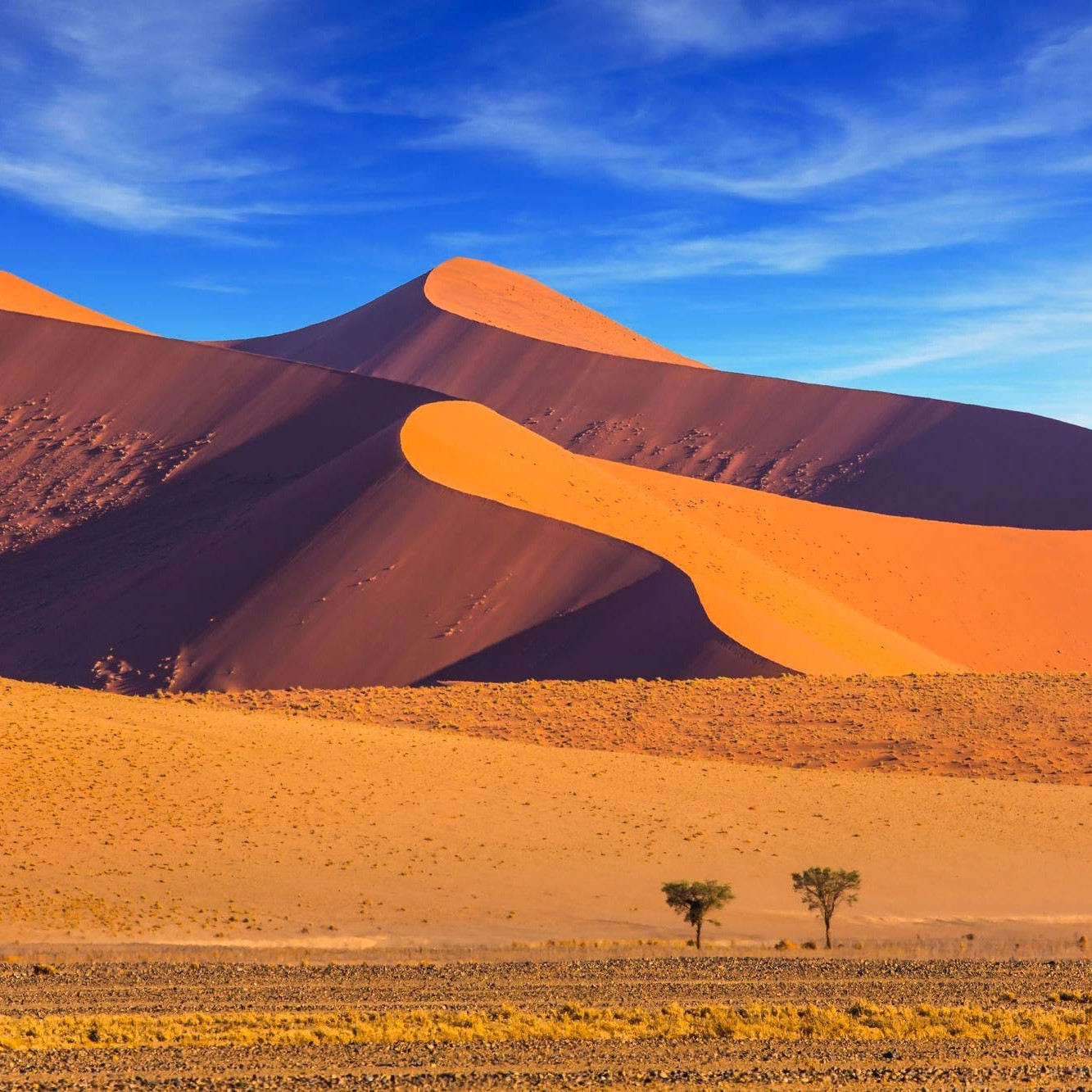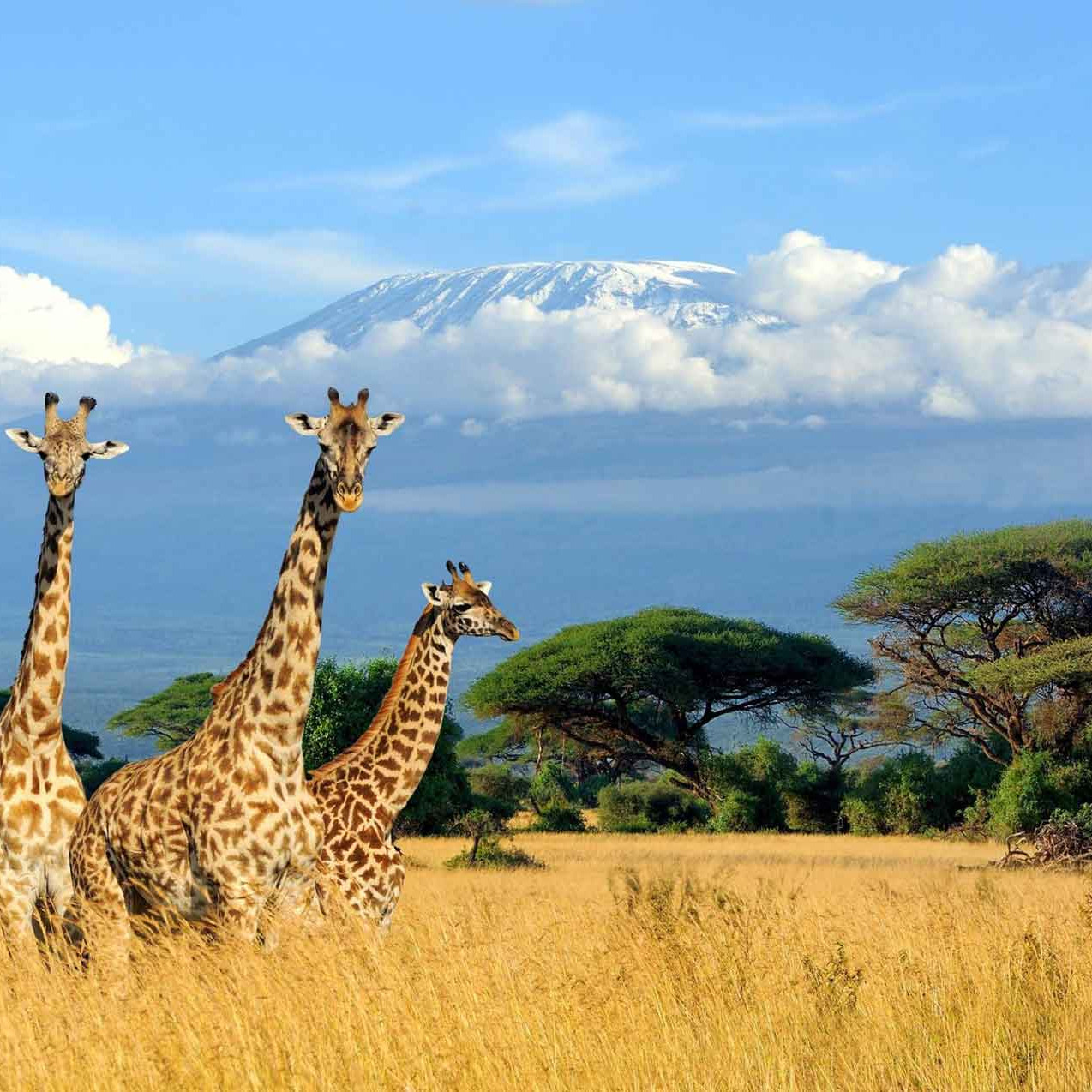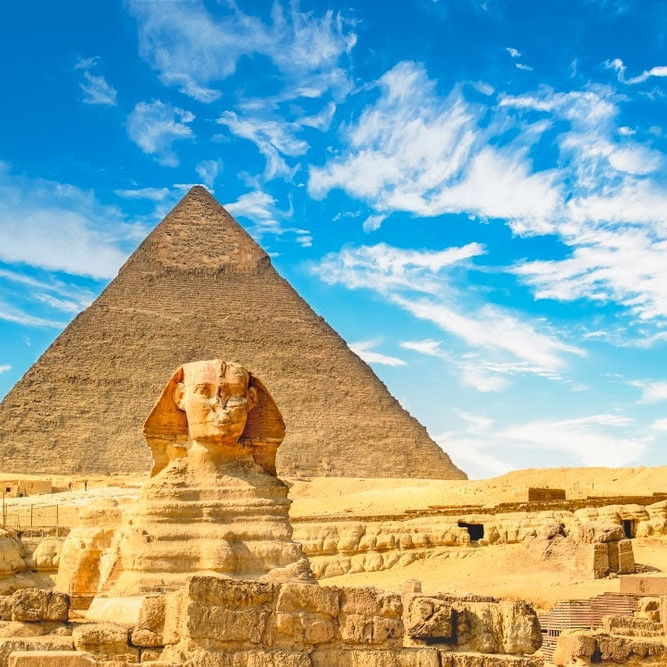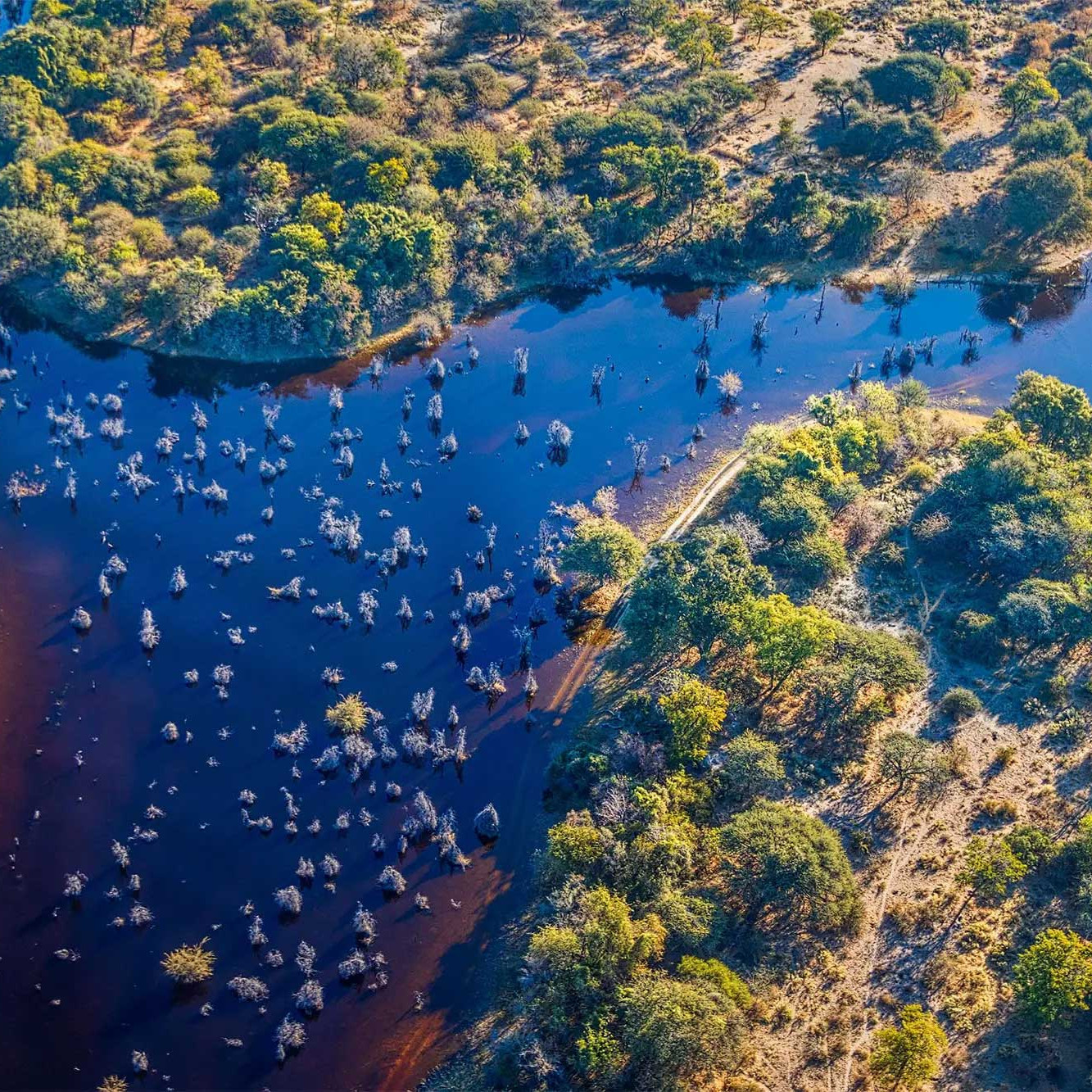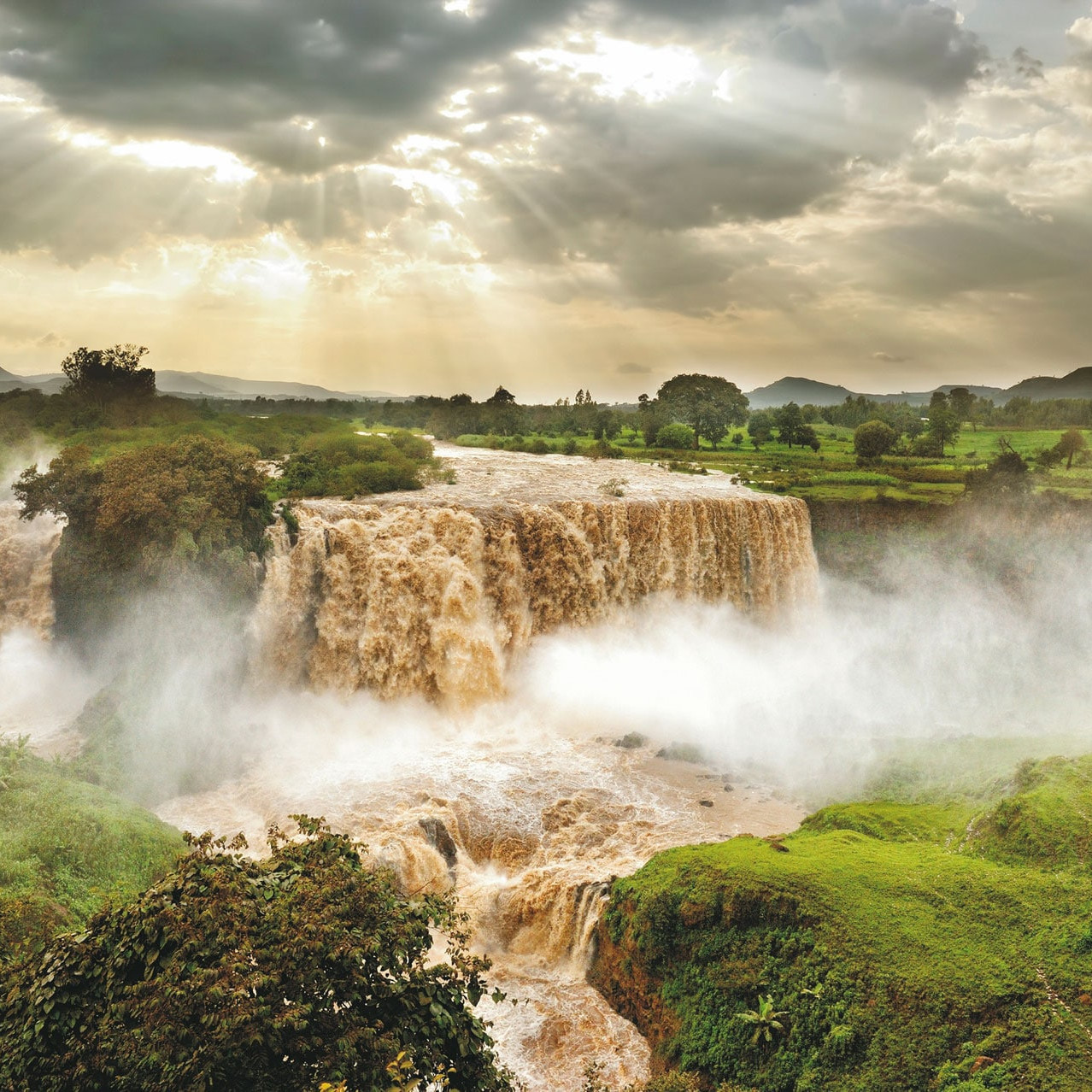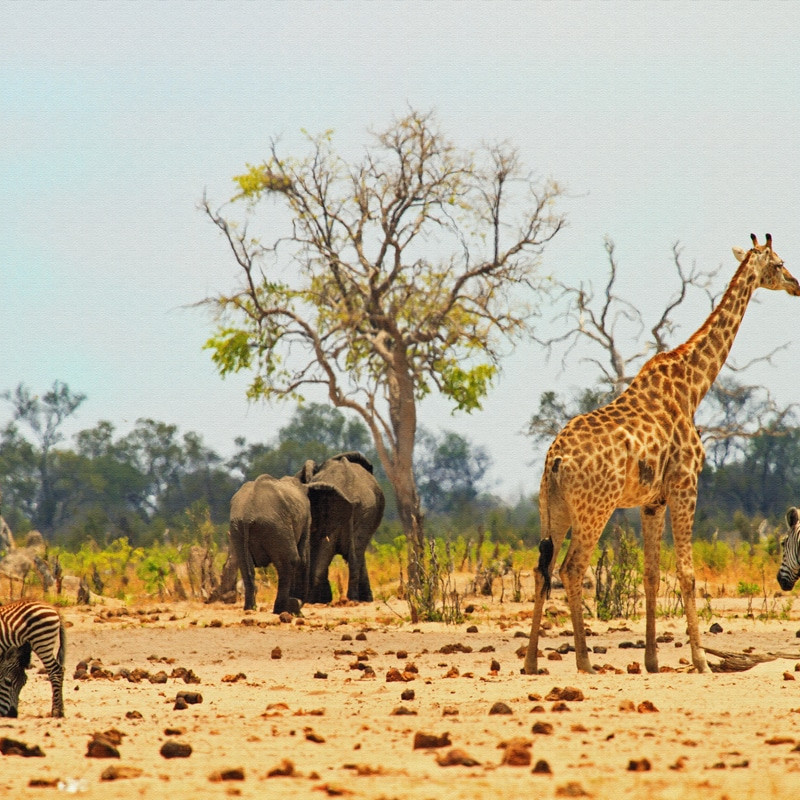Located in the Indian ocean approximately 250 miles (400 km) off the coast of Africa, Madagascar, the fourth-largest island in the world, is a biodiversity hotspot, home to an array of unique wildlife and plant species found nowhere else on the planet. Visitors to Madagascar can explore its incredible national parks, stunning beaches, and vibrant local culture, which blends elements of African, Asian, and European influences.
Why Visit
NATURE & BIODIVERSITY
Madagascar is home to over 11,000 endemic plant species, offering unique nature and landscapes, from jungles, forests, deserts, high peaks to plateaus, lagoons, stunning beaches and more that would impress anyone, highlighting the baobab trees in the Avenue of the Baobabs.
WILDLIFE
Thanks to its diverse landscapes, Madagascar offers an unique wildlife, with more than 200,000 known species endemic to the country, and due to the absence of monkeys, is home to the lemurs, with more than 103 species of them. The island is the only place in the world where these can be found. The country is also home to two thirds of the world’s chameleons species, as well as 300 birds, 240 reptiles and hundreds of species of insects and other mammals.
CULTURE
People in Madagascar come from an interesting mix between African, Arabs and Indians. A former French colony, it is a melting pot of diverse cultures and traditions. Locals are extremely welcoming and warm, allowing tourists to discover their culture and customs. There are many ethnic groups along the island, each of them with a different set of beliefs, traditions and cuisines.
BEACHES
With over 5,000 km of coastline, Madagascar boasts a diverse range of beaches, from secluded coves to long stretches of golden sand. Some of the most popular beaches in Madagascar include Nosy Be, Anakao, and Ifaty, where visitors can enjoy swimming, snorkeling, and diving in the crystal-clear waters, or simply relax on the pristine sands and soak up the sun. The beaches of Madagascar are a true paradise for beach lovers and nature enthusiasts alike.
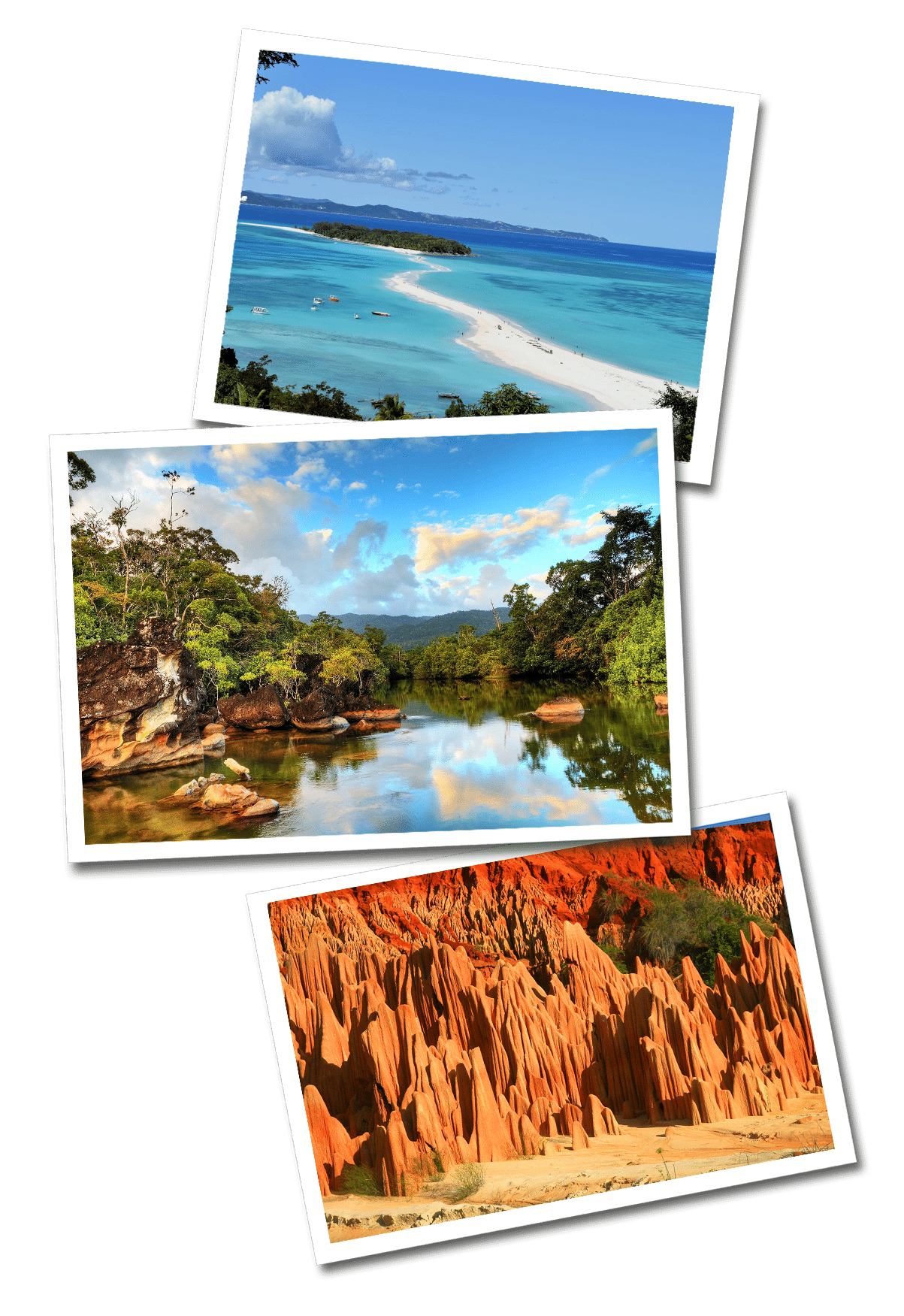
Located in the Indian ocean approximately 250 miles (400 km) off the coast of Africa, Madagascar, the fourth-largest island in the world, is a biodiversity hotspot, home to an array of unique wildlife and plant species found nowhere else on the planet. Visitors to Madagascar can explore its incredible national parks, stunning beaches, and vibrant local culture, which blends elements of African, Asian, and European influences.

Why Visit
NATURE & BIODIVERSITY
Madagascar is home to over 11,000 endemic plant species, offering unique nature and landscapes, from jungles, forests, deserts, high peaks to plateaus, lagoons, stunning beaches and more that would impress anyone, highlighting the baobab trees in the Avenue of the Baobabs.
WILDLIFE
Thanks to its diverse landscapes, Madagascar offers an unique wildlife, with more than 200,000 known species endemic to the country, and due to the absence of monkeys, is home to the lemurs, with more than 103 species of them. The island is the only place in the world where these can be found. The country is also home to two thirds of the world’s chameleons species, as well as 300 birds, 240 reptiles and hundreds of species of insects and other mammals.
CULTURE
People in Madagascar come from an interesting mix between African, Arabs and Indians. A former French colony, it is a melting pot of diverse cultures and traditions. Locals are extremely welcoming and warm, allowing tourists to discover their culture and customs. There are many ethnic groups along the island, each of them with a different set of beliefs, traditions and cuisines.
BEACHES
With over 5,000 km of coastline, Madagascar boasts a diverse range of beaches, from secluded coves to long stretches of golden sand. Some of the most popular beaches in Madagascar include Nosy Be, Anakao, and Ifaty, where visitors can enjoy swimming, snorkeling, and diving in the crystal-clear waters, or simply relax on the pristine sands and soak up the sun. The beaches of Madagascar are a true paradise for beach lovers and nature enthusiasts alike.
- Name: Republic of Madagascar
- Capital: Antananarivo
- Official Languages: Malagasy ,French
- Currency: Malagasy ariary
- Time Zone: UTC+3
- Name: Republic of Madagascar
- Capital: Antananarivo
- Official Languages: Malagasy, French
- Currency: Malagasy ariary
- Time Zone: UTC+3
Bucket list
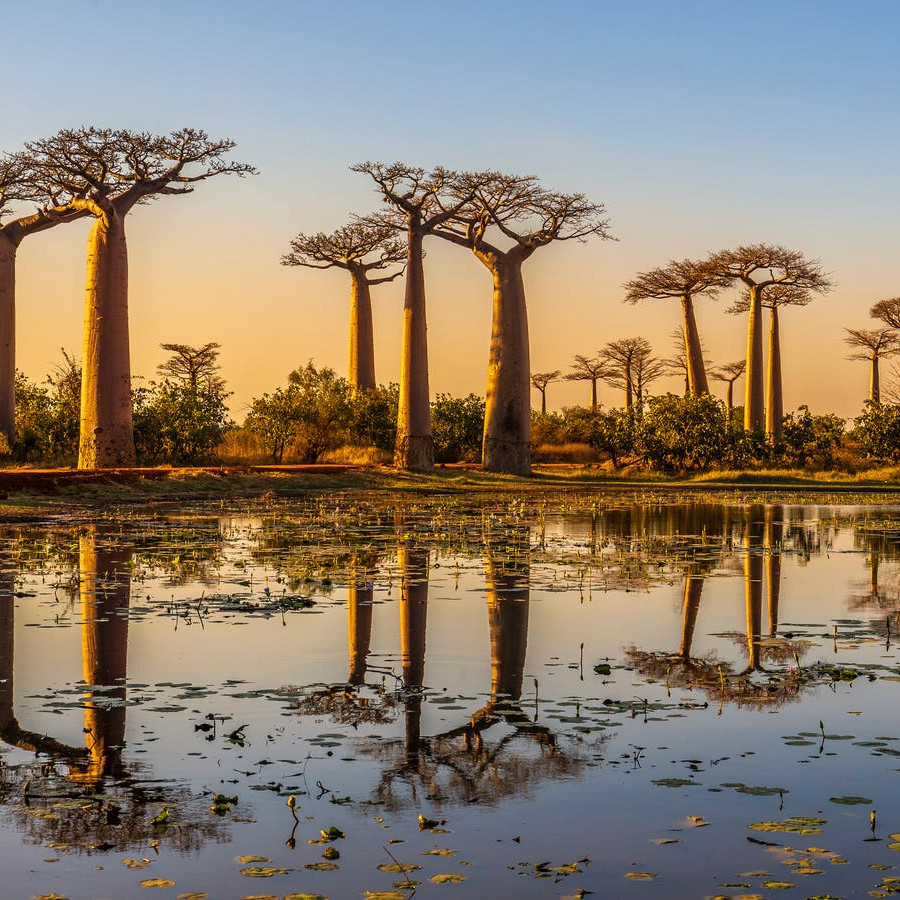
Visit the Avenue of Baobabs
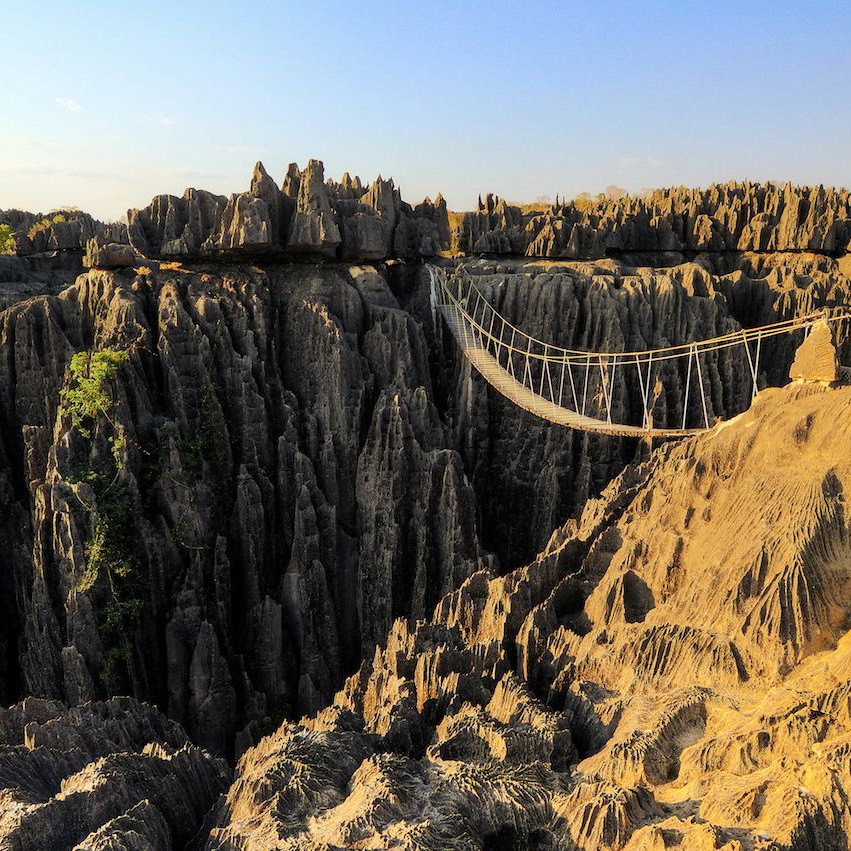
Cross the Suspension bridge over the canyon at the Tsingy Nature Reserve
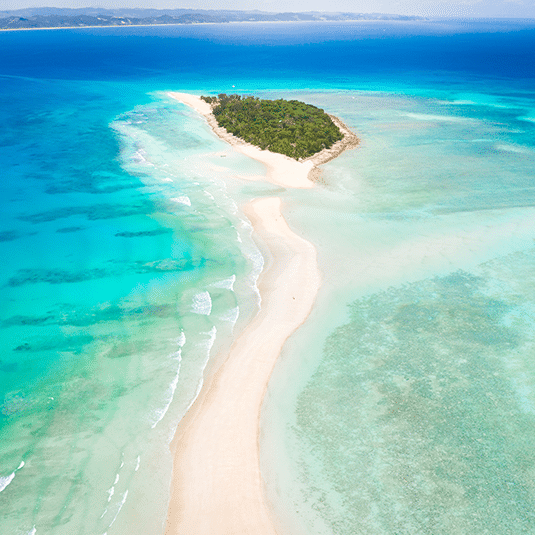
Hit the beach in Nosy Be
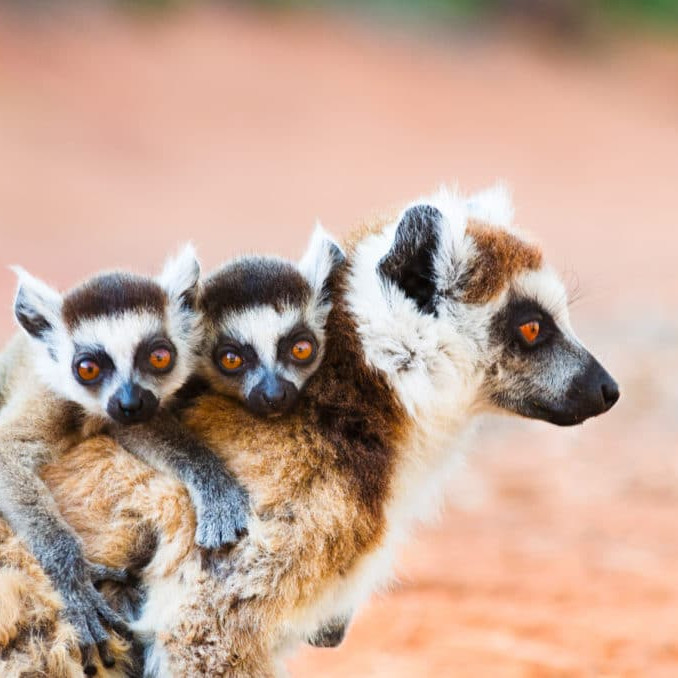
Spot some lemurs in Ranomafana National Park
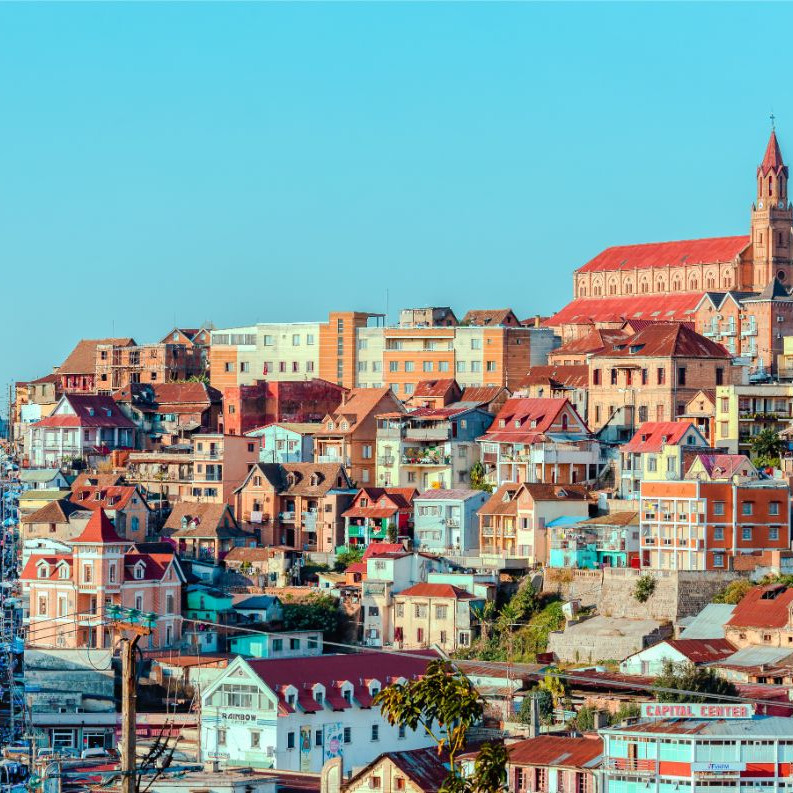
Wander around Antananarivo
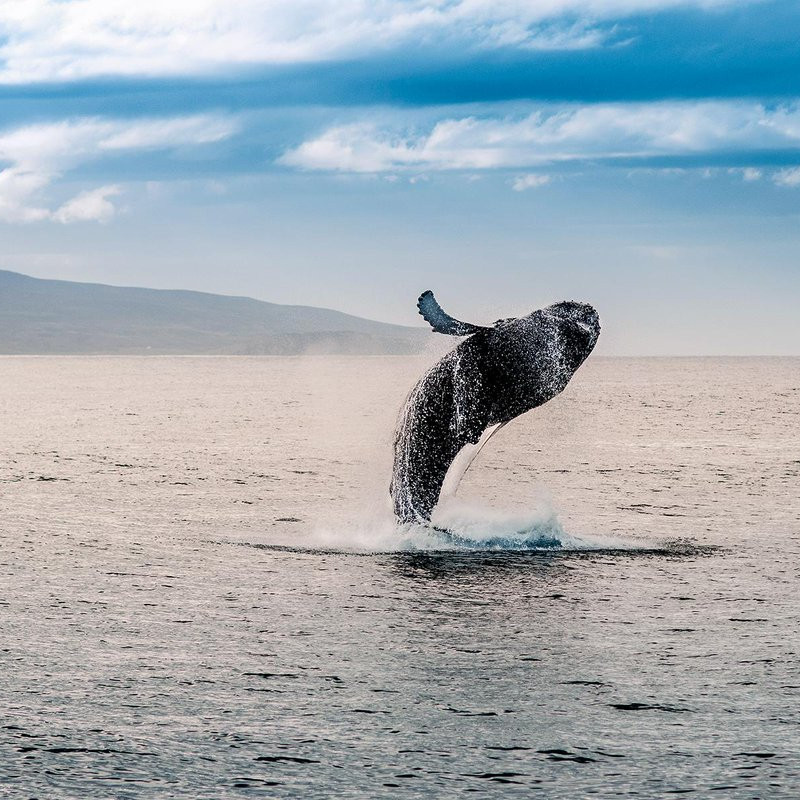
Go Whale watching
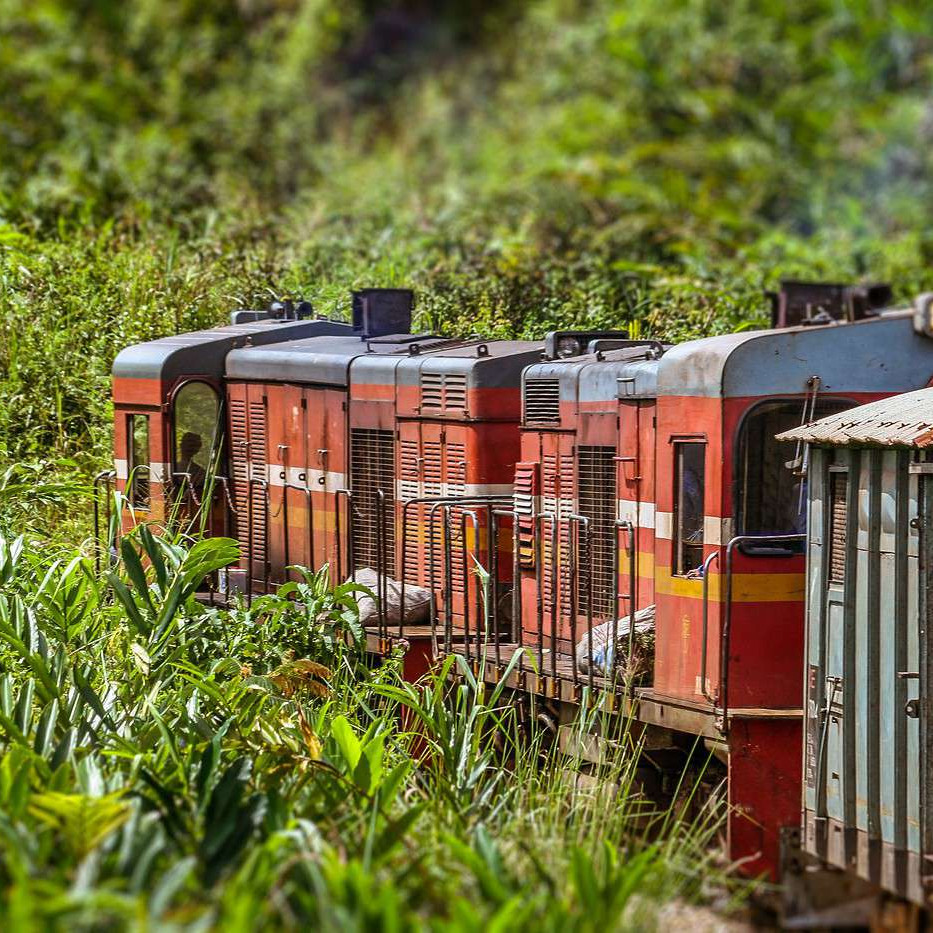
Catch the Manakara Express
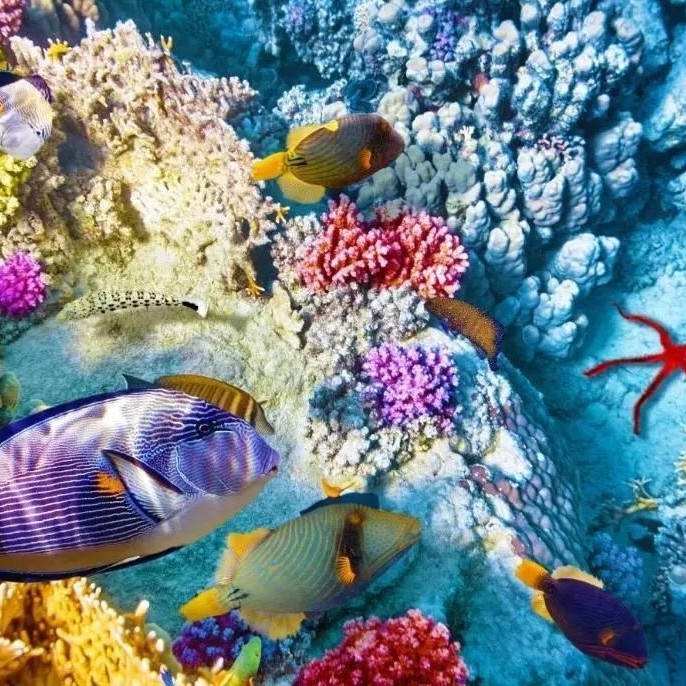
Do some snorkel and scuba diving by the coral reef
What to expect
LANGUAGE
The official languages of Madagascar are Malagasy and French. Malagasy is the national language and is spoken by the majority of the population, while French is widely spoken in business, government, and education sectors. English is also spoken to a lesser extent, particularly in tourist areas.
ELECTRICITY
In Madagascar the standard voltage is 220 V and the frequency is 50 Hz. That’s the standard voltage (220-240V) in the UK, Europe, Australia and most of Asia and Africa; If you are traveling from the US you will need an adaptor.
CURRENCY
The Malagasy Ariary is the currency of Madagascar. Other foreign currencies, like dollars and euros, might be accepted in some tourist places and hotels but won’t be accepted in smaller establishments. You could exchange your money at the airport (recommended) or at exchange houses or banks, you could also withdraw from the ATM. Credit cards are widely accepted. 1 USD equals 4,387 malagasy ariarys (as of 2023).
CLIMATE
Madagascar has a tropical climate with two seasons: a hot and rainy season from November to April and a cooler and dry season from May to October. The eastern coast is particularly rainy, while the western coast is drier. Temperatures are generally high, ranging from the mid-70s to mid-80s Fahrenheit, with coastal areas experiencing high humidity.
SAFETY
Madagascar is generally considered a safe country for tourists, with low levels of crime compared to other destinations. However, it is always recommended to take basic safety precautions such as being aware of your surroundings, avoiding poorly lit areas at night, and not displaying valuables in public. Visitors should also be cautious of petty theft and pickpocketing, particularly in crowded tourist areas.
How to get around Madagascar
- Domestic Flights: Madagascar has a network of domestic airports that connect to major cities and tourist destinations. Air Madagascar is the national airline and offers regular flights to major cities and some regional airports.
- Private Cars and Taxis: Private cars and taxis are available for hire in major cities and tourist destinations. It is recommended to hire a car with a driver who knows the local roads and conditions.
- Public Buses: Public buses are available in most cities and towns, and they are the most common mode of transportation for locals. They are often crowded and uncomfortable, but they are also the most affordable way to travel.
- Trains: Madagascar has a limited railway network, but it is an interesting way to travel across the country. The trains are basic and slow, but they offer great views of the countryside.
- Ferries and Boats: Ferries and boats connect Madagascar’s coastal cities and islands. They are a popular way to reach the remote islands and coastal villages. The services can be unreliable, and the conditions can be basic, but they offer an authentic experience of local life.
- Motorbikes and Bicycles: Motorbikes and bicycles can be rented in tourist destinations and major cities. They offer an affordable and flexible way to explore the local area, but it is important to note that the roads can be challenging, and safety equipment is often not provided.
Visa Policy
The visa policy of Madagascar states that most visitors require a visa to enter the country. Tourists can obtain a visa on arrival at the airport or apply for an e-visa before their trip. It’s important to check the current requirements and restrictions before planning a trip to Madagascar, as they can vary depending on the visitor’s nationality and the purpose of their trip.
SUBSCRIBE!
Are you a globetrotter? Join our platform and get exclusive travel tips, getaways and more!
Malawi
Travel Malawi, a paradise for those looking for beautiful landscapes without the crowd. The country offers natural diversity for animal..
Namibia
Travel to Namibia, a beautiful and diverse country known for its stunning natural landscapes and wildlife-rich national parks...
Kenya
Travel Kenya, from exotic wildlife, being one of the prefered safari destinations in Africa and featuring animal migrations, to pristine..
Egypt
Explote Egypt, home to one of the principal ancient civilizations and the world’s earliest urban and literate society. With over 5,000...
Botswana
Botswana is home to an incredible fauna, one of the preferred destinations for safaris and a really popular destination in Africa.
Malawi
Travel Malawi, a paradise for those looking for beautiful landscapes without the crowd. The country…
Ethiopia
Travel Ethiopia and discover the birthplace of coffee. The country is home to a rich history and…
Zimbabwe
Travel Zimbabwe, the hidden gem of Africa. It is emerging from a lot of years of political and…


